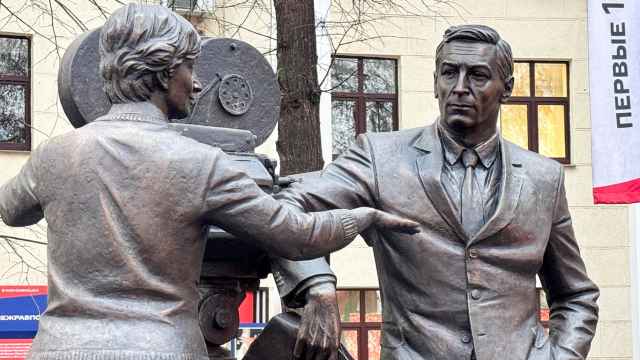Brit Vitalij Farafonov came to Russia for the first time in 2007. He now works as director of internal control at TNK-BP in Moscow. Alongside his day job, Farafonov, 32, is a volunteer and member of the board of governors for Step Up Orphan Opportunity Center.
Q: Why is Step Up such an important charity?
A: The state generally tries quite hard to look after orphans in Moscow: Orphanages are well funded, and young adults are usually given apartments when they are old enough to leave. What we have found, however, is that there is very little work done to help socialize orphans in preparation for adult life. They often don't know how to live in the outside world and can quickly go down the route of drug addiction, alcoholism and prostitution. We try to prevent this and focus on their post-orphanage life using education as a tool to help them integrate into society after an institutionalized childhood.
Q: What does Step Up provide that an orphanage does not?
A: We create a strong sense of community. Orphans can interact with the outside world, and they get to meet people from various walks of life: professionals, teachers, actors, film directors and so on. They see that the outside world is not so scary and that they are the same as anyone else. It's about self-confidence.
Q: How can people help Step Up?
A: I am currently planning Russia's first-ever Charity Clay Pigeon Shoot. It's a popular fundraising event back in Britain, and I want to bring it to Russia. I am looking for volunteers to help organize and publicize the event and I'd be pleased to have anyone on board who is willing to help. It's going to be an event open to everyone, even those who have never held a gun before. Both individuals and companies will be able to participate. All the money we raise will go to Step Up.
Q: What differences have you noticed between charity in Britain and charity in Russia?
A: In Russia people generally feel uncomfortable talking about their support of charities as there is a fear it could be taken as self-promotion. In Britain, however, charity is seen very much like any other competitive business, so people tend to talk more about the good causes they support, which helps to develop a "giving" culture. I also think that the pace of life and work in Moscow often does not allow people to stop and think about how lucky they are and that others are less fortunate. However, this is changing. Just as people are becoming more active politically, we are also seeing an increase in the number of socially active people who volunteer their time or money for good causes.
To find out more about Step Up visit . If you wish to get in contact about the upcoming Charity Clay Pigeon Shoot please send an e-mail to [email protected].
A Message from The Moscow Times:
Dear readers,
We are facing unprecedented challenges. Russia's Prosecutor General's Office has designated The Moscow Times as an "undesirable" organization, criminalizing our work and putting our staff at risk of prosecution. This follows our earlier unjust labeling as a "foreign agent."
These actions are direct attempts to silence independent journalism in Russia. The authorities claim our work "discredits the decisions of the Russian leadership." We see things differently: we strive to provide accurate, unbiased reporting on Russia.
We, the journalists of The Moscow Times, refuse to be silenced. But to continue our work, we need your help.
Your support, no matter how small, makes a world of difference. If you can, please support us monthly starting from just $2. It's quick to set up, and every contribution makes a significant impact.
By supporting The Moscow Times, you're defending open, independent journalism in the face of repression. Thank you for standing with us.
Remind me later.





